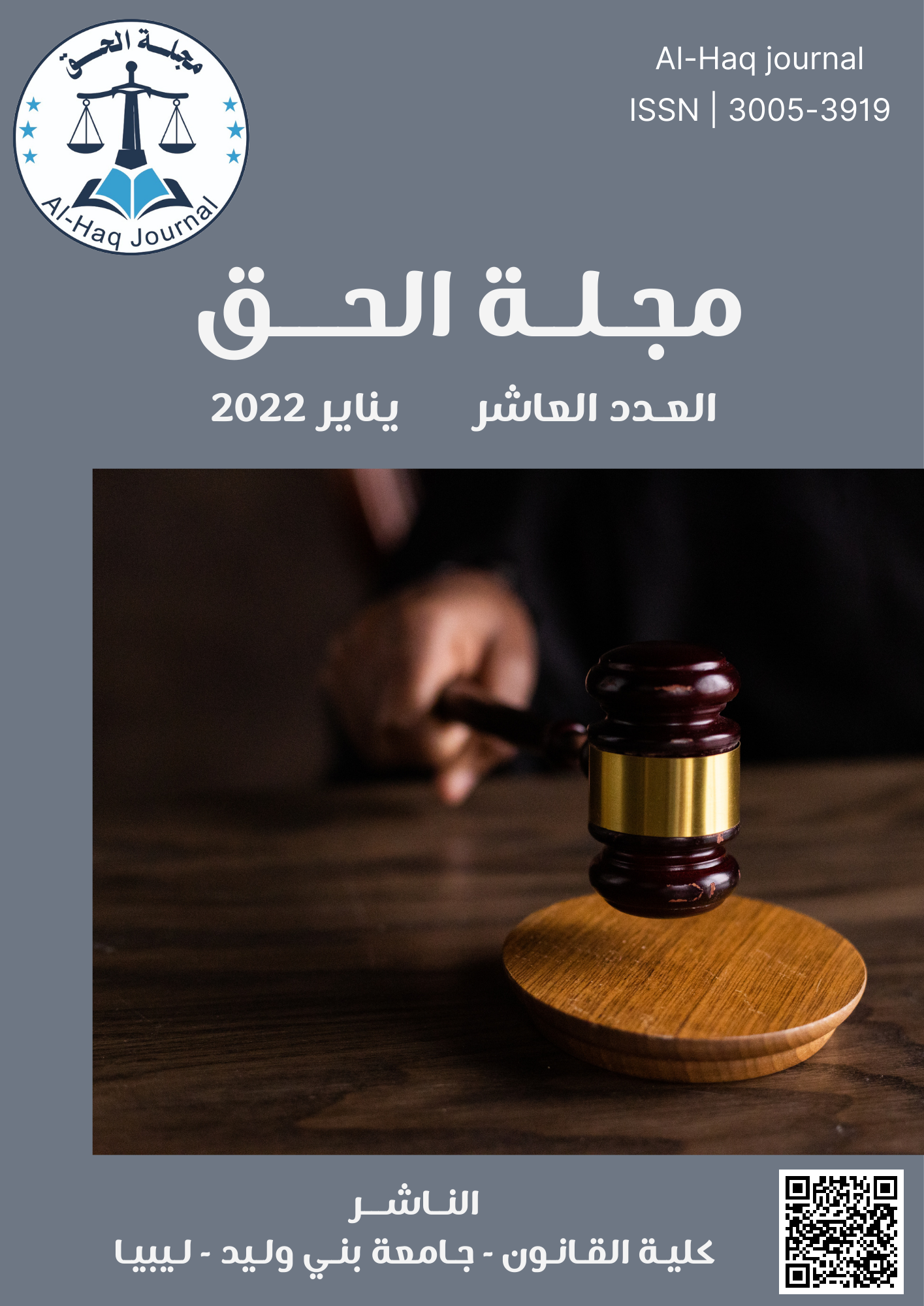The Legal and Political Concept of the Head of State within the Framework of International Law
DOI:
https://doi.org/10.58916/alhaq.vi.32Keywords:
International law, the political system of the country, the international community, international relations, head of stateAbstract
As we all know every country has a president, and the head of state is the symbol of the country’s strength, and he is the person who represents the country internally and externally, and this representation is decided for him and has nothing to do with authority. The country's political system, therefore, the power of the head of state increases with the increase in state functions, and these powers that the president possesses become real and honorary powers as they were before. The head of state becomes a nominal member of his country and expresses his country's will in the international community. He has the ability to act on behalf of his country in the field of international relations. He is the one who sends ambassadors to his country, he is the one who receives the credentials of foreign ambassadors, he is the one who concludes treaties and manages everything. Therefore, the actions he has taken are recognized in international law and he enjoys a series of privileges and immunities that protect him from any attack. Accordingly, in this study we will discuss the criminal protection that heads of state enjoy under international law and its rules.
Downloads
References
- إبراهيم الغناي ،القانون الدولي العام، دار النهضة العربية، القاهرة 1990.
- أبو العباس القلقشندى صبح الأعشى في صناعة الانشاء، المؤسسة المصرية العامة، القاهرة، بدون تاريخ نشر.
- أحمد أبو الوفاء ،قطع العلاقات الدبلوماسي، دار النهضة العربية، القاهرة، 1991.
- الشافعي محمد بشير ،القانون الدولي العام في السلم والحرب، ط2، منشأة المعارف، الإسكندرية، 1974.
- جعفر عبد السلام قواعد العلاقات الدولية في القانون الدول وفي الشريعة الإسلامية، ط 1، مكتبة السلام، القاهرة،1981.
- حامد سلطان، عائشة راتب، صلاح الدين عامر،القانون الدولي العام، دار النهضة العربية ، القاهرة،1987.
- حامد سلطان، القانون الدولي العام وقت السلم،
- سموحي فوق العادة (الدبلوماسية والبروتوكول)، 1960.
- عبد الحكيم عبد الرحمن، مشكلة الحصانة القضائية، القاهرة ،مكتبة النصر،القاهرة،1991.
- عز الدين فوده ،النظم الدبلوماسية،دار الفكر العربى،القاهرة، 1996.
- عزة مصطفى حسنى عبد الحميد ،مسؤولية رئيس الدولة دراسة مقارنة، دار النهضة العربية، القاهرة، 2008..
- على صادق ابوهيف، القانون الدبلوماسي، ط5، منشأة المعارف، الإسكندرية ، 1997.
- محمد سامي عبد المجيد أصول القانون الدولي العام، ط2 ،دار المطبوعات الجامعية، الإسكندرية، 1998 .
- محمود حلمي ،نظام الحكم في الإسلام مقارنا بالنظم المعاصرة، ط3، دار الفكر العربي، القاهرة، 1975.
- محمود حلمي ،نظام الحكم في الإسلام مقارنا بالنظم المعاصرة، ط3، دار الفكر العربي، القاهرة، 1975.
- هشام على صادق ،طبيعة الدفع بالحصانة، مجلة العلوم القانونية والاقتصادية،العدد1، القاهرة، سنة 1969.
الرسائل العلمية:
- إبراهيم حمدان، رئيس الدولة في النظام الديمقراطي، رسالة دكتورة، كلية الحقوق، جامعة القاهرة، 1987.
Downloads
Published
Issue
Section
License

This work is licensed under a Creative Commons Attribution-NonCommercial 4.0 International License.









